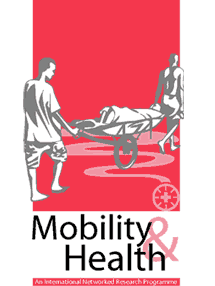"Bigger the better" or should it be "Value for money"
I have been having a conversation with Jamie Enoch, Research and Policy Analyst at the UKCDS, on a study that the UKCDS did for DFID on Mapping Infrastructure Research for Development. You can read the exchange of words on the Linked In AFCAP (African Community Access Programme) group if you are a registered member of Linked In, and are inclined to join the group. .
 Jamie tried to justify UKCDS omission on the grounds that though the work was very relevant "it might be slightly out of place in this mapping exercise, given its primary focus on ongoing rather than historic programmes". The financial support to IFRTD was however reflected in the graphs in the UKDS report, and the SEACAP programme was mentioned, though it was significantly more historic than IFRTD in the DFID funding time line! The justification for the inclusion of SEACAP was the it was a £8 million programme!
Jamie tried to justify UKCDS omission on the grounds that though the work was very relevant "it might be slightly out of place in this mapping exercise, given its primary focus on ongoing rather than historic programmes". The financial support to IFRTD was however reflected in the graphs in the UKDS report, and the SEACAP programme was mentioned, though it was significantly more historic than IFRTD in the DFID funding time line! The justification for the inclusion of SEACAP was the it was a £8 million programme!This is the point of this blog. Yes, IFRTD was definitely a smaller investment of the British Tax Payers' money than SEACAP, but what if the impact of the pounds was greater? Should that not be be the criterion by which development assistance is evaluated? Surely, the British Tax Payer is interested in value for money? And what if, just what if, smaller programmes like IFRTD that had potential to build capacity and make lasting changes in the minds of professionals and the public in more than 27 countries in the global south, gave higher returns for the bucks spent? Is this not something we would want to know?
I was reminded of the 1990s campaigns against the big dams (which incidentally are coming back - the dams that is, not sure about the campaigns!) One such that halted the construction of the Arun-3 dam in Nepal was vindicated by the fact that the projects that replaced the controversial big dam "provide a third more electricity at almost half the time it would have taken Arun-3 to come on line, and at half the cost". What does it take to learn that bigger/larger/more is not always better?


.jpg)
Comments
Post a Comment